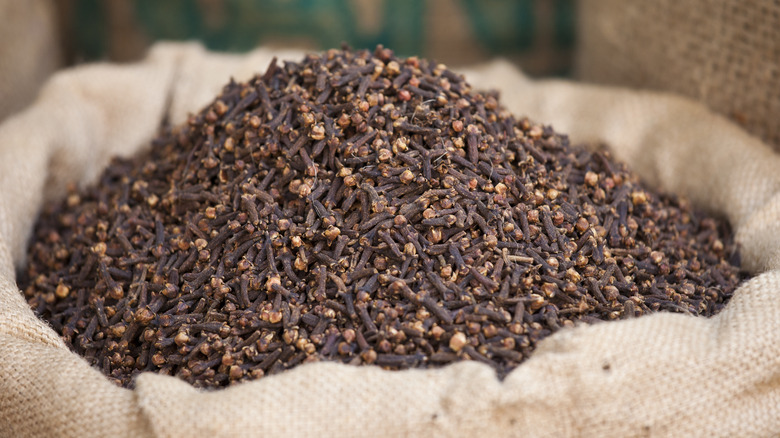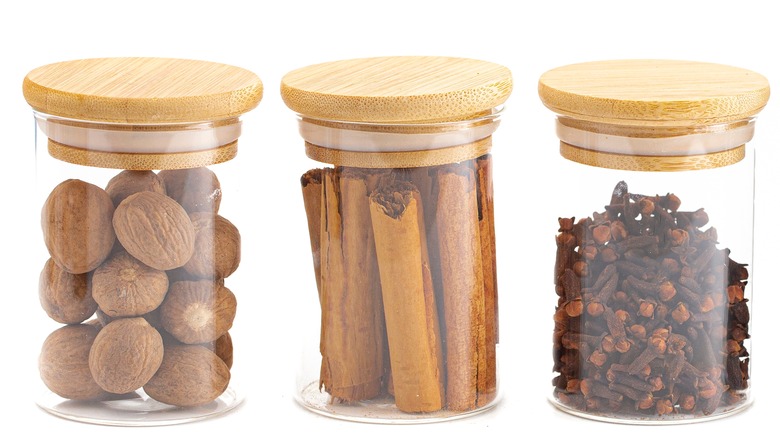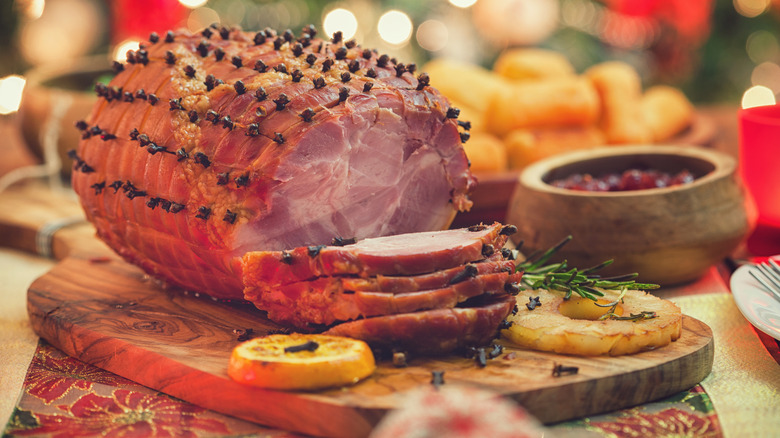Do Cloves Expire?
We may receive a commission on purchases made from links.
"Here, smell this." "Is this still good?" "Wait, is that mold?" Home cooks ask this of their family members, or perhaps get confronted with these questions along with the olfactory assault of questionable milk, not-so-fresh fish, meat past its prime, and leftovers of dubious age. We like to think our food will last long enough for us to eat it, but unfortunately we often don't get to it before it spoils. Even canned goods are not invincible — and while the Food and Drug Administration tells us that technically, frozen food is safe to eat forever, its quality will certainly decline and freezer burn will eventually take hold.
But what about the foods we use to season our other foods? In the shelf life department, spices have our backs. They typically a nice, long time and get utilized quickly enough to remain optimally fresh for cooking. However, some of the more seldom-used ones must be more closely examined, like whole cloves. Cloves are one of the most enigmatic spices in the cabinet. What are they? Why do they smell and taste so potent? When do you use them, and do they ever go bad?
Get to know cloves
According to MasterClass, we've been using cloves for food and medicine for millennia. Named for the French word for "nail" ("clou"), they're the flower buds of a tree related to myrtles. Healthline seconds this, explaining that cloves spice up roasted meats, warm drinks, desserts, and the cuisines of countries such as India. Aside from being sweet and pungent, cloves do have nutritional value (including high levels of manganese and antioxidants), and research suggests they may help with liver health and blood sugar. Additionally, their unmistakable smell and taste come from their oil.
So...do they ever go bad? Insider reports that spices are usually fine to use past their expiration date, but won't taste as good as their culinary powers have waned. Whole spices including cloves are inherently stronger in flavor and outlast their ground versions, keeping for up to four years. To ensure quality and potency, Insider also recommends keeping your whole cloves (and any spices in your cabinet, pantry, or drawer) totally dry, in airtight containers, and out of the reach of light and heat: Even storing spices by the stove or keeping container lids open while you're cooking a hot and steamy dish is risky.
Cooking with cloves
Cloves are among the warm, cozy "mulling spices," along with cinnamon, nutmeg, ginger, and star anise. Around the holidays, you'll see them in mulled wine, glogg, hot cider, and dishes like orange clove baked ham. Cloves are also a key ingredient in chai, which Chef Priyanka describes as a milky, spiced tea drink often enjoyed on the higher end of the sweet side. The Seattle Times reports that the numbing oil of cloves is a natural analgesic and also a wonderful flavor in foods as wide-ranging as cookies, pickles, and meat rubs.
Try using your whole cloves in Bobby Flay's smoked ginger chicken with cardamom, cloves, and cinnamon. Spice company McCormick suggests pairing them with cumin, garlic, and black pepper and using them in hibiscus clove iced tea and spiced sangria. To warm up gradually to the unique flavor of clove, you can try them ground in blends like ras el hanout and DIY pumpkin pie spice (per Spiceography). As long as you respect their individuality and treat them right, whole cloves will provide years of gustatory enjoyment.


